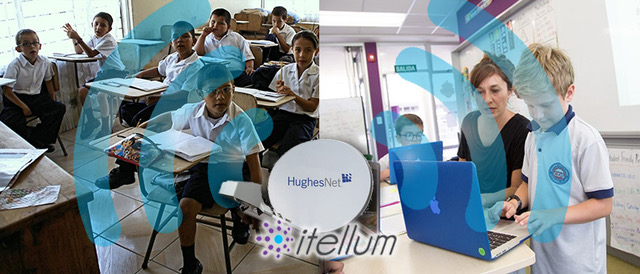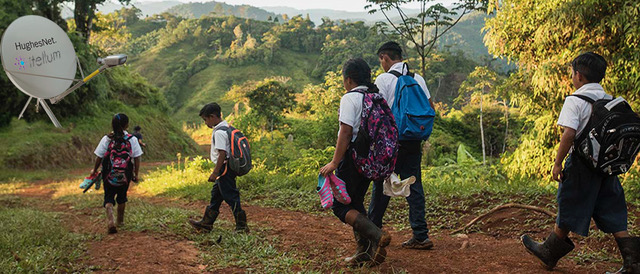How Costa Rica is Amping up Tourism and its own Workforce
The New Digital Nomad Law in Costa Rica is getting quite a bit of attention these days. Although applications are being accepted, and some approved, the requirements have not been fully ironed out yet. Basically, the intention is that travelers can visit the country for a longer period of time under the approved law, hopefully attracting this type of professional to live and travel throughout the country. The objective is to promote foreign consumption of local products and services — a welcome concept after a tourist drought during the pandemic.
The trend toward working remotely or a hybrid of working online off-site and in a physical company office has grown dramatically over the past few years. with benefits for the employer, employee, and the self-employed.
Of course, there’re other options for foreigners wanting to work in Costa Rica. One is known as Temporary Residency for Self-employed Skilled Workers. This applies to people who are self-employed and have some sort of acquired skills through education or experience. Although an individual who has graduated from college or technical school can qualify in this category, a recent resolution has curtailed the individuals that may be accepted in order to protect the local workforce. Every year a list of non-accepted professions is issued at the beginning of the year and then reviewed again at the end of the year. So simply being self-employed and a skilled worker is not enough to necessarily qualify.
Another way is a Special Category for Self-employed People with a Registered Business in the country. This differs from the investors status category where you must invest a minimum of $150,000 US, employ Costa Ricans, and cannot work in your own business. This category allows you to work in your business and receive a paycheck however, you cannot obtain permanent residency or bring in other relatives. Also, you must renew your status under this category annually and have all documentation for your business in good standing. So to remain in the country, your business must be operating at all times with the required documentation.
It should be noted that none of these options apply to the Costa Rican that returns to the country after being abroad for a long time or to those that travel throughout the country on business. But that is immaterial since these options have little validity if there is no accessible, stable Internet available to those that need it.
But wait. iTellum solves that problem by providing the fastest most reliable Internet in Costa Rica via 1:1 International fiber optics and high throughput satellite broadband to everyone in the country, visitors or nationals! Fast satellite internet is made possible through an alliance with the HughesNet satellite named Jupiter 2. An added plus is that iTellum’s high-speed satellite Internet is not just available to visitors to Costa Rica or those in larger cities, but also to 97% of the entire country and its population. This is having a staggering effect on the population’s ability to compete in a much higher capacity than ever before.
Secure and fast satellite services have opened up many more opportunities in the country, not only for people in and around the Central Valley but for those who reside and work in remote areas. Rural satellite Internet is bridging the “Digital Divide” in Costa Rica. What does that mean? It means that individuals and businesses that have little or no access to stable reliable Internet will now have the opportunity to take advantage of this latest technology through iTellum. This is especially true in remote areas or areas that simply did not have Internet service providers willing to provide internet service in that area. There are schools literally scattered throughout the country that are so difficult to get to many ISPs don’t have service in the area nor do they think it makes sense financially to provide it.
Although the country’s population has one of the highest literacy rates in the world, one has to consider the generational gap in the perception of education. When the Internet became a basic necessity for life on the planet, some areas were left behind. Being in a tiny wooden schoolhouse in the mountains with one teacher is quite a different learning experience than that which involves communicating through a computer screen. Today education and hence the advancement of the population cannot succeed without the Internet or, in this situation, the advantage of the best satellite broadband possible. Populated areas that have well-funded private schools with well-trained professionals and high-tech equipment or large public schools with a large enough tax base to fund equipment purchases have a colossal advantage over those that do not have access to the same. Bringing Costa Rica’s only high-speed satellite Internet to the entire population allows everyone to take advantage of the opportunities that others already have.
Of course, one should take into consideration, that there should be a blend of human interaction and computer technology. The learning experience in today’s world should clearly, not be one or the other. Addressing the divide between the Central Valley schools and those challenged by geographic locations or socioeconomic deficiencies is one that iTellum has faced head-on. Maybe it may take a little longer to get onsite, but the setup is fast and easy for the experienced technicians that enjoy what they do. Nothing is better than seeing the smile on the face of a teacher that has longed for reliable satellite internet, or the student who is sending an email for the first time.
Reaching out to the percentage of the population that is part of this gap in education means that opportunities will be abundant for those in the future. And that future is fueled by educated individuals that will make a difference in the development of the country and make a difference in our world.
Whether you are on vacation in Costa Rica, working remotely from here, or have lived here all your life, you can reap the benefits of the fastest satellite Internet available.






